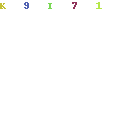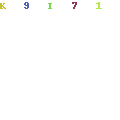A medic collects a swab sample for Covid-19 at a hospital in Nerul
Mumbai: From February onwards, B.1.617 spread rapidly, with five-digit cases reported from Mumbai and Delhi every day. B.1.617 was initially called the Indian variant until the WHO promoted an unbiased nomenclature, naming its sub-lineages 1 and 2 are named as Kappa and Delta, respectively.
In December, no scientist in the country or the world (as genetic sequences are shared by most scientists in open source format in real time) could predict that Delta would emerge as the variant of concern that managed to infect vaccinated peop-le. “The emergence of Delta proves that we need to study the virus closely…Before planning for the third wave or looking for ot-her variants, we need to understand what made Delta more tr-ansmissible,” Dr Anurag Agrawal, director of IGIB, told TOI.
On Friday, a pre-print study by scientists of India’s INSACOG consortium of labs said th-at “surge of SARS-CoV2 infections in Delhi is best explained by the introduction of a highly transmissible VOC, B.1.617.2, with likely immune-evasion pr-operties; insufficient neutralizing immunity, despite high ser-opositivity; and social behavior that promoted transmission’’.
In January, it was believed that the ‘UK variant’ B.1.1.7 was the most common variant in circulation in Delhi. “This was followed by seeding of the B.1.617 VOC, which too is highly transmissible, with rapid expansion of B.1.617.2 sub-lineage outpacing all other lineages. This unprecedented growth of cases occurred in the background of high seropositivity,” said the study.
Dr Agrawal said at present there is no technology to ascertain which mutation or variant would trigger a new wave. “Analytics and genome sequencing will only take you so far. Sequencing cannot figure out what the emergence of a new variant means. We can only tie it to an outbreak later. We are in that sense always behind the curve. Hence, we need to learn more about the virus so that we can sequence better and forecast better.” There is a need to develop more tests, plan more sequencing and adopt promising new technologies, including low-cost CRISPR diagnostics for places with limited resources, said the scientist.
Dr Nerges Mistry of Foundation for Medical Research, which has sequenced B.1.617 variants, said there is an urgent need to scale up genomic sequencing. Dr Kayzad Nilgiriwala said sequencing is low in India as compared to European nations such as the UK and Denmark which sequence about 5% of the positive samples.
FacebookTwitterLinkedinEMail
Source: https://timesofindia.indiatimes.com/city/mumbai/mumbai-no-tech-to-ascertain-which-variant-will-trigger-new-wave-says-scientist/articleshow/83246746.cms


